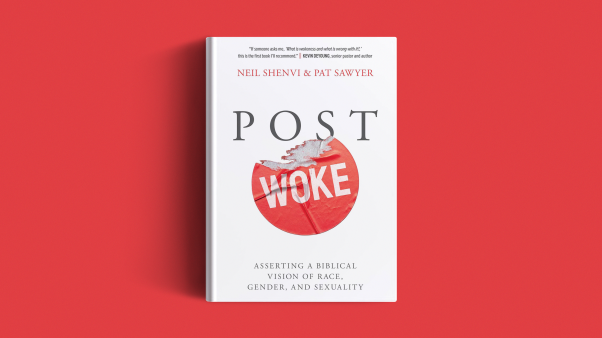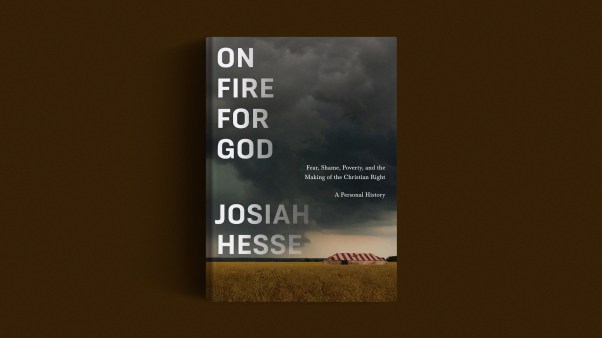We have seen the young man mutilated,
The torn girl trembling by the millstream.
And meanwhile we have gone on living …
We have all had our private terror …
-T.S. Eliot, Murder in the Cathedral
I didn’t know it, but I was too late.
Frank had died twenty minutes earlier, but when I arrived, all I saw were the hospital sheets, like wrinkled drapes in a house in which no one lives, lying on a disheveled and very empty bed.
I picked up the sheets anyway, as if to make sure Frank wasn’t hiding beneath PROPERTY OF WEST PENN HOSPITAL. He wasn’t, but lying next to the garbage can was a crumpled piece of paper. I investigated this new evidence. People don’t simply disappear from hospital rooms.
“Turn the corpse over and fold the arms behind its back,” the note read. Frank is dead! I realized. What a way to find my old friend. An hour ago Frank was watching “The Today Show” and sipping cold coffee. Now he is “the corpse.”
Two weeks earlier I had gone to his house to give him Communion.
“This is my body that is broken for you.” How many times, my old friend, have you heard these words? I thought. I wonder if you know how uncomfortable I am.
“Take, eat . . .” What right do I have to serve you Communion? I silently asked. Because I went to seminary? What do I know about life? About death?
Frank reached out and draped one pallid hand on top of mine. His cool touch steadied my shaking. But something in the coolness of it let me know he would soon die.
“This do in remembrance of me.”
I gave him Ritz crackers and grape juice. He gave me fresh peanut butter cookies. “Bet you could never guess they were made from margarine,” he chuckled.
They were holy cookies. I nervously munched on them all the way home.
But now, an empty hospital room. A dead man. A silly, young pastor.
When will our terrors cease?
Die is what we do best at my small urban church. I guess I thought ministry would be like a Cary Grant movie in which everything turns out glamorously. It doesn’t. I am thirty-three and I have already seen too many abused children and hungry street people.
Death and profound dullness are etched on passing faces. Practically everyone-including me-has been mugged or abused. Deeper still, our great fear is not death or hunger but that we will be forgotten or ignored. We in the city fear that one day we will become so unimportant we will simply cease to exist.
There seems to be no context to the suffering I see, no reason for what is happening. It is difficult to identify the victim and the perpetrator. I yearn for clarity, for some enemy I can attack, some solution I can embrace.
This emotion is not new. Years ago I worked with Rock Hardaway, a fifty-year-old urban pastor in inner-city Nashville. Rock, fearing I would fizzle out at about age twenty, took me under his wing. And once he courageously left his flock in my care. I was ready to guard Rock’s two little congregations from heresy, sickness, and the wily Devil. The only emergency I encountered the first week, however, was Widow Fitzgerald’s leaky faucet, which was never the same after I provided pastoral care.
But then Mr. Roberts entered Baptist Hospital. I could hardly contain my enthusiasm. I’d been hoping for a little more dramatic pastoral emergency-a car wreck or something-but lung cancer would have to do.
In my naivet it never occurred to me Mr. Roberts might die. I had never known anyone who died. They always got better. Besides, I was sure God would heal him within the week. But after I tried everything I knew-healing incantations, fasting, anointing with oil-he only quietly smiled at me and continued to die. During one flashing July thunderstorm, he dropped his applesauce-filled teaspoon into his lap and died.
I stared at him for over an hour.
When will our terrors cease?
My terrors cease when I am with other colleagues. The emotional investment my profession demands is too great to be handled alone. When Mr. Roberts died, I thought my short pastoring life was over. Then Rock came-I don’t know when. We never spoke, but he bought me a Whopper and a vanilla shake and took me home. He sat with me until I slept.
Without that kind of support, I stop risking involvement. I have therefore intentionally sought companionship. Every other week, three pastor friends and I gather for fellowship and prayer. We offer each other perspective and much-needed grace. We share our defeats and successes, feelings and fears.
Then monthly I meet with a friend who is a nun. She serves as a spiritual director, helping me interpret how God is speaking to me. She encourages me to seek fresh ways to hear his voice. And to hear his voice, to feel his hand on my life, is to be encouraged. She is not my therapist; she is not my wife; but she listens and insures that I have a viable spiritual life.
My terrors cease when I meet with my counselor. Although I do not regularly see a trained counselor, I maintain a close professional relationship with one. Occasionally I contract four or five sessions with him to solve a particular problem that has arisen in my life. Usually, these issues, which become opportunities for growth, arise out of relationships with parishioners or out of my marriage. Most will be resolved anyway, but a counselor allows me to resolve them with a minimum of pain. Where I serve and what I do only benefits.
My terrors cease when I intentionally spend focused time with God. I must have times of solitude-even whole days-or I lose my way. Without scheduled quiet times with God, I discover unhealthy dependency on human approbation or material resources.
My terrors cease when I nurture a relationship with my spouse. My wife is not a substitute for my God, my work, or my conscience. And God knows we need to work on our relationship more. But I discovered seven years into our marriage that she loves me. Really loves me. In fact, I am convinced that she will always love me. That profound but simple fact of unconditional love has transformed my life. We pray together. We communicate. We face the terrors in our lives and our pasts together.
My network of care-spouse, spiritual director, support group, and times of solitude-were present when my congregation nearly fired me. They were present when I needed to be told I was too hard on a congregant. They were there when I needed to hear that I was ignoring my wife. They were present when my father suddenly died of cancer. They encouraged me to continue pursuing a program when I was ready to scrap it. They enabled me to stand firm in the face of temptation and adversity.
Many pastors’ equilibriums are as fragile as mine. Many pastors face as many terrors as I do. I am certain that wholeness and emotional strength will not flow into our lives until we intentionally seek out support. We must be willing to risk, to be vulnerable. Or our terrors will never cease.
-James P. Stobaugh
Fourth Presbyterian Church
Pittsburgh, Pennsylvania
Copyright © 1987 by the author or Christianity Today/Leadership Journal. Click here for reprint information on Leadership Journal.









